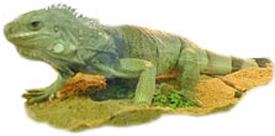English Words from Amerind
(an American Indian or an Eskimo; any of the languages of certain American Indians or Eskimos)
The words in this unit have been compiled from a list of the "Amerind" language. The parts of speeches and definitions were added from a variety of sources.
2. An area of land that is very fertile in the southern part of the United States, especially in Florida: A hammock is normally higher than the area around it, has a vegetation of hardwood and humus soil that is deep and rich.
Sandra went to Florida on vacation and wanted to see the Highland Hammock State Park which used to be a very fertile area for farming by the pioneers a long time ago.
3. Etymology: Spanish hamaca, from Taino (extinct Arawakan language) hamaka.The hammock, that was made of henequen, belonged to Lois's grandmother, and it was still as good as new after several years of use!
2. Etymology: from Spanish "henequén", possibly from Arawakan.
2. Etymology: from Navajo, hoghan, "house".
2. A wind at a speed of more than 75 miles (121 kilometers, or 73 knots) per hour: The velocity of the hurricane the week before was measured at 80 mph on the Beaufort scale.
3. A sudden and violent outburst: The news of the tax rate going up to 30% unleashed a hurricane of violent anger and chaos in the country.
4 Etymology: Spanish huracán; from Taino hurákan; related to Arawak kulakani, "thunder".
Some iguanas grow to a length of 6 feet and, unless they are attacked, they are considered to be harmless.
"The iguanas are one of the biggest families of lizards, with some 700 species."

Reading in a book about Indians, Susan found out that each Hopi tribe had its own Kachina, the mythological ancestors of living humans in spirit form.
There might have been up to 500 Kachinas!
2. A dancer who wears a very detailed and elaborate mask, and is supposed to represent a certain spirit during a ceremony, either a religious or an agricultural one: One of the Kachinas, wearing a fantastic costume, was even thought to be transformed by one of the spirits during the devout ceremony in the evening.3. A doll which is carved, wearing a costume of a particular spirit and normally given to a child as a gift: At the souvenir store, Linda bought a little Kachina for her daughter as a birthday present.
4. Etymology: from Hopi katsina, "a magical or supernatural being or a masked person pretending to be such a being."
On her trip to Florida, Susan and her family visited Key West, a small island only four miles long and two miles wide.
The seaport, also called Key West, is the most southern city in the United States with a population of about 25,200 people.
2. Etymology: Spanish cayo, "shoal, rock"; from Arawak.While visiting an authentic Hopi Indian Village in the southwestern part of the United States, Thomas could go inside a kiva and see the fantastic murals on the walls.
There was also a small hole in the floor called a sípapu and Thomas learned that it symbolized the place where the tribe originated.
2. Etymology: from the Hopi language, kivaOnce Rudolf saw a century plant in the botanical gardens in his city and found out the following day that it was a maguey, a typical type of cactus of southwestern United States, Mexico and Central America.
Rudolf also read that the maguey had been used to make alcoholic drinks; such as, pulque and tequila!
2. The fiber which is extracted from a cactus: Maguey is used to make ropes.Later Virginia learned that corn was also called maize in other countries besides the United States and Canada.
The maize the Smith family was eating in their salad had kernels that were not only yellow, but also black and red!
2. A yellow to light orange color: June wanted so much to find a scarf and shoes to match the maize dress that she was going to wear to the summer picnic.2. A Republican in 1884 who decided not to support the party ticket: Sally read in her history book that the first time the word mugwump was used was in 1884, when a Republican would not support and vote for the presidential candidate James G. Blain.
3. Etymology: from Algonquian (Natik) mugquomp or mukquomp, "chief, important person, great man".
2. A bag, formed like a pouch, which is used to carry an infant and worn on the the mother's back: Jane wanted so much to find an Inative doll wearing a papoose for her little daughter!
3. Etymology: from Algonquian, Narragansett papoòs, "child" or "very young".
While on their trip around the southern states, June and her husband found out that one of the biggest industries was the production of pecans.
The typical sweet foods that included pecans were the pies and pralines, which they loved to eat in cafés after their walking tours.
2. The edible nut of this tree, being extremely rich with a very high-fat content, has a special flavor and texture: Jeanette's favorite dessert was pie made from pecans, which she learned later had almost as many calories as butter!3. Etymology: from Cree, pekan, "hard-shelled nut".


